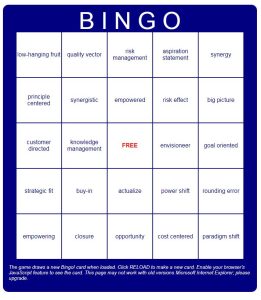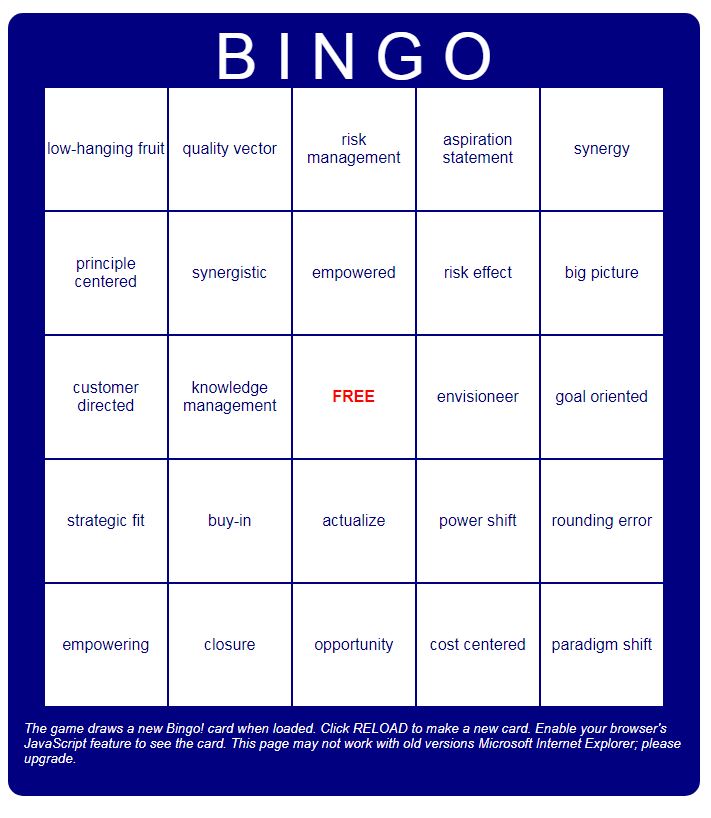Having worked across a number of industries during my career, I feel pretty safe in saying no industry loves it jargon (and acronyms) like healthcare. The general technology industry probably comes in a close second, but for pure technical mumbo-jumbo you can’t beat healthcare.
Part of it, I think, is that the healthcare industry is filled with a lot of smart people. Because of that, everyone feels like they have to sound like the infamous “smartest person in the room.” So they load up their content or their speeches or even their everyday conversations with a lot of jargon designed to give that impression.
Nowhere does that become more apparent than when I go to check the website of a new client or prospect to start familiarizing myself with their business. I can’t tell you how many times I’ve come away after reading page upon page asking “But what do you do?”
Yes, you’re open and interoperable. Yes you follow evidence-based best practices. Yes, your methodology is transformative and sustainable. Yes, your subject matter experts have a wealth of experience in solving the toughest problems facing the industry. But again, what do you do?
If I, who has an employment-based incentive for comprehending your inscrutable jargon can’t figure out what you’re trying to say, what do you think happens to the typical prospect doing a fly-by? They see a bunch of words and terms they’ve heard 100 times before. They try to determine if they’re in the right place, looking at the right company.
But if it doesn’t come to them immediately, odds are they just move on. You lose.
Keep it simple
You’ve probably heard this quote, often erroneously attributed to Albert Einstein: If you can’t explain it simply, you don’t understand it well enough. Ol Al may not have said it, but there is a lot of truth to it nonetheless.
I know this from personal experience. Thanks to my work here at Amendola Communications, I have had the opportunity to speak with some incredibly smart, accomplished people. They are the kind of people who are leading all of healthcare toward amazing new discoveries and ways of working.
While they come from different backgrounds and have expertise in very different areas, the one trait they all had in common was their ability to get their point across in a way that the average person could understand.
Some were talking about advanced analytics and machine learning. Some were talking about the nuances of health insurance. Some were literally talking about curing cancer. But you never walked away from the conversation wonder what the H-E-double hockey sticks they were talking about.
Instead, you walked away energized and inspired. Not to mention excited about the possibilities for the future and how their companies were creating them.
Learning to speak/write plainly
Becoming a clear communicator like that isn’t easy. It actually takes a lot of work to make your communication sound effortless yet on-target.
The first step, quite honestly, is not being afraid that people won’t think you’re smart if you don’t pack your content or your spoken words with industry jargon. In business there are no points awarded simply because you sound “smarter” than everyone else. The money goes to the people who show they understand the problem and how to solve it.
Once you’ve bought into that philosophy, start looking through your current content, perhaps with a Business Buzzwords Bingo card in hand. If you find you are winning within the first three paragraphs of a piece of content, especially your company website, you know you have some work to do.
paragraphs of a piece of content, especially your company website, you know you have some work to do.
Now listen to speeches from great communicators or read materials from a technically sophisticated consumer product. Whether you were a fan of Ronald Reagan’s or not, the man knew how to sell an entire nation on a concept. Is what you’re doing any different? Or as my colleague Michelle Noteboom points out, see how Donald Trump approaches the same challenge. You may not like what he says, but you must admit he has a way of stating his positions simply.
Car companies, especially the high-end ones, offer a great example of plain speaking. Even when they’re talking technical specs, they do it in a way that focuses on why you should care.
Apple has always had a good handle on that as well. While everyone else in the industry was talking about jitter rates and Hz-related info, they were telling how you could get 1,000 songs in your pocket. Everyone can understand that.
There’s the key. It’s not about the bells and whistles in your product. No one cares how much effort you had to go through to develop it. That’s your problem.
What they want to know is what’s in it for them. The easier you make it to understand that, the more intrigued they will be.
Read my lips: no more jargon
Well, very little anyway. It is healthcare, after all, and there are technical terms that must be used at times. But if you try to ensure that any jargon you use is essential to explaining your position, and that there’s no other way to say it, you’ll likely find prospects staying longer and going deeper on your website. And more willing to engage with you all the way to a sale.
